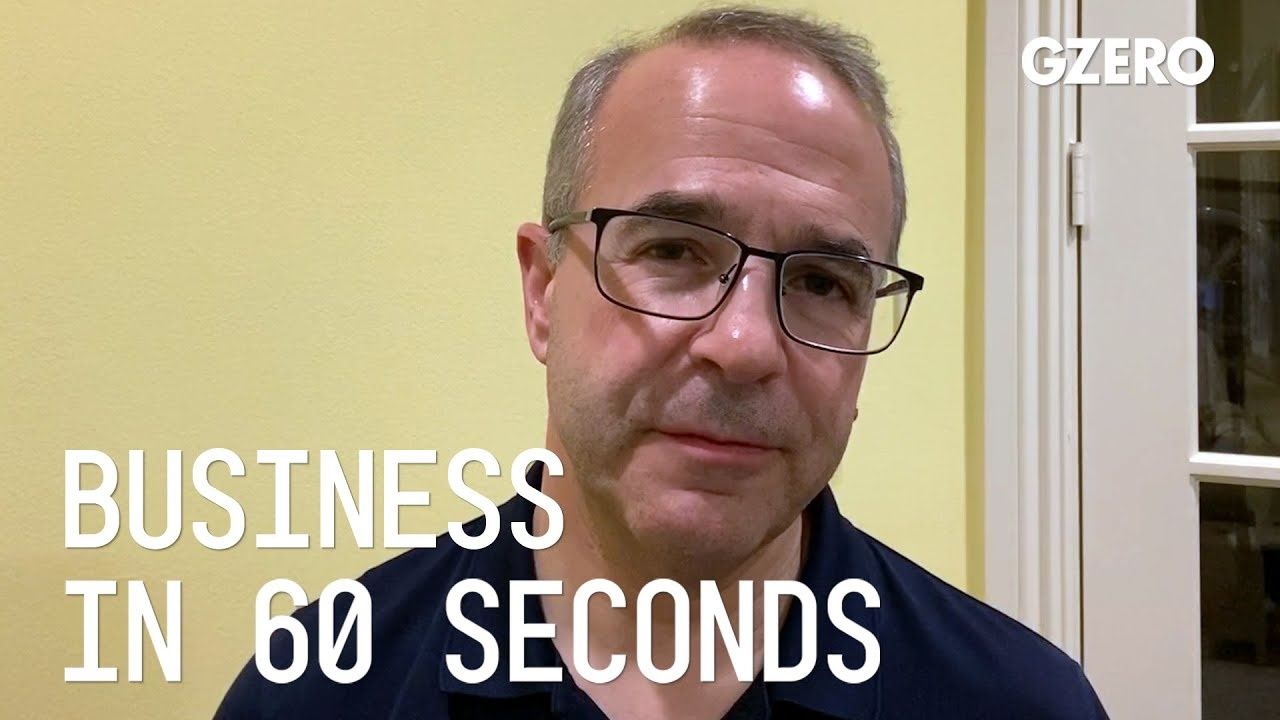In 60 Seconds
What will the world look like after COVID-19?

New Norms in Business & Commerce Post-COVID-19 | Business In :60 | GZERO Media

Kevin Sneader, global managing partner for McKinsey & Company, provides perspective on what corporate business leaders are thinking during the global coronavirus crisis: Is it too early to envision how the world could look after Covid-19?
Well, in some respects, it is too early. We're still fighting a global pandemic. And most, if not all, effort needs to be on that. But at the same time, I am hearing business leaders beginning to talk about what it will take to resurrect their businesses and in doing so, resurrect the global economy, a task that is vital for all our futures. And as they do so, I think it is possible to discern the shape of a world post Covid-19.
First of all, Frances Cairncross wrote a very powerful book in the late 90s on "The Death of Distance," well, I think distance is now returning. People are becoming much more aware of the importance of product being made near to where they live, of who they're with. And as borders go back up, I think distance is going to become an increasing part of our reality, and of business reality.
Second, the contactless consumer. In many respects, that's not new. Digital has been ensuring that that has been an option for some time. But the boost that it has received to, for example, payments also going very much online and being digitized, talks to a world in which the contactless consumer may well become the norm rather than an exception when it comes to shopping and so many other forms of day to day activity.
Third, the importance of resiliency over efficiency. For some years now, our supply chains, for example, are being built for efficiency. Well, resilience is going to become ever more important as we reflect on the lessons from this Black Swan event. And in doing so, I think that will change the way business is conducted, quite fundamentally.
Fourth, we've long had a belief in the importance of commerce, but now there's a whole new sense of the worth of some of the other features of day-to-day life. And as that becomes true, I think business is going to have technology. A different rule for business versus, for example, government. And the intervention and the role that government can play as more and more of business and the economy is in fact owned by the government itself due to the actions now being taken to safeguard day-to-day lives and the ways of living that underpin them.
These are just a few of the features that are increasingly going to shape the world after Covid-19 has passed.
In this episode of "ask ian," Ian Bremmer breaks down Notre Dame football.
Geoffrey Hinton, the ‘Godfather of AI,’ joins Ian Bremmer on the GZERO World podcast to talk about how the technology he helped build could transform our lives… and also threaten our very survival.
Is the AI jobs apocalypse upon us? On Ian Explains, Ian Bremmer breaks down the confusing indicators in today’s labor market and how both efficiency gains as well as displacement from AI will affect the global workforce.
Remember Xinjiang? There was a time, not long ago, when China’s crackdown on the Uyghurs, a Muslim minority group living in Xinjiang province in Northwestern China, was a hot topic. But these days the attention has faded.